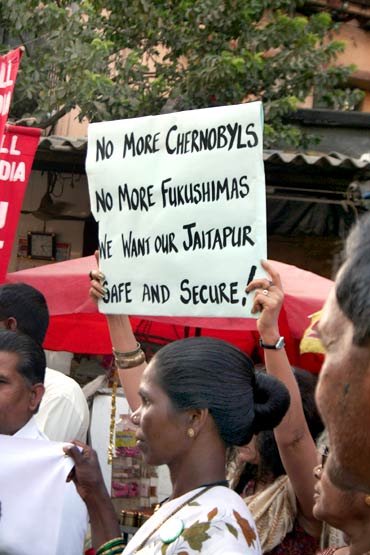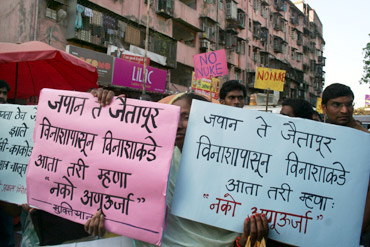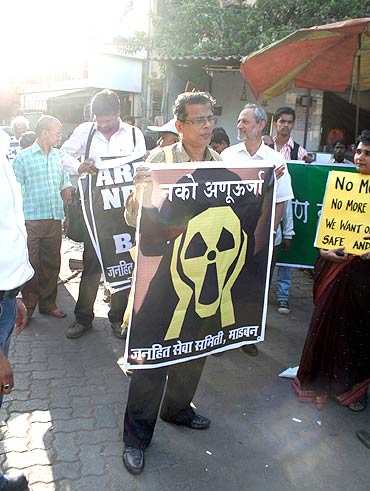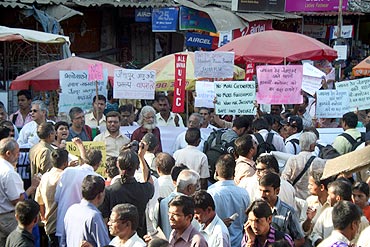
On being denied entry into Ratnagiri by the district administration, the two retired judges said they would not withdraw their agitation till the Jaitapur nuclear power plant is abandoned.
The Lokshasan Andolan is one of the many umbrella organisations spearheading the opposition to setting up a 9,800 MW nuclear power plant in Jaitapur in Maharashtra's Ratnagiri district by the French company Areva.
Addressing media-persons on Monday to highlight the reign of terror let loose in Jaitapur by the state government, in order to stave off the popular agitation by the locals, Kolse Patil said, "The state government is employing terrorist means to stave off our agitation. They are spreading a reign of government terror in Jaitapur."
The chief minister and his ministers are directly and indirectly encouraging the prevailing lawlessness, he added.



Earlier, Kolse Patil said the government was neglecting alternate sources of energy.
Making his case for clean, cheap and renewable sources of energy, Kolse Patil said as per the government figures two lakh MW of power can be produced by small hydro-electric power projects, 46,000 MW from wind energy, 16,000 MW from agricultural waste, 5,000 MW from sugarcane waste -- apart from the immense potential of solar energy to narrow the power deficit in India.
"It's a moot question then as to why the government is neglecting this aspect of development and progress," he said.
He also made the case for plugging power leakages during transmission and distribution of power and claimed that it itself can make India a power-surplus country.
"Forty per cent of India's generated power is wasted in transmission and distribution. Even if we reduce these losses by 20 per cent we will become power-surplus," he added.
The international figure for such losses is five to 10 per cent, he added.

Justice Sawant said vested interests are involved in bringing the Jaitapur nuclear power plant to fruition. "Otherwise there is no reason why the government is not encouraging plugging the leakages and looking at hydro power through small dams that comes as cheap as Re 0.20 per unit."
The duo also highlighted the fact that even if the life of a nuclear reactor is just 40 years, the waste that it produces during its operations remains active for 2.4 lakh years. "No country has an effective mechanism to safely dispose of radioactive waste, and extending the life of nuclear reactors beyond 40 years is fraught with grave consequences to the environment and the people," Sawant said.
While claiming that the nuclear establishment in India is trying to stymie the flow of information from Japan, which is passing through one of the worst nuclear power disasters, Kolse Patil said "government-sponsored scientists" are systematically misleading the nation.